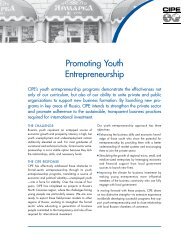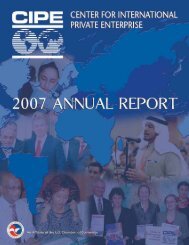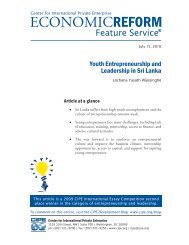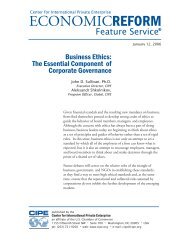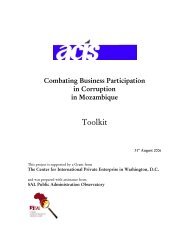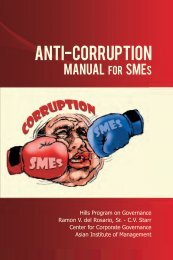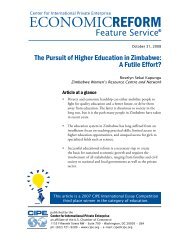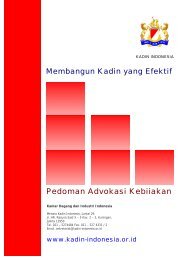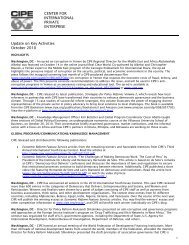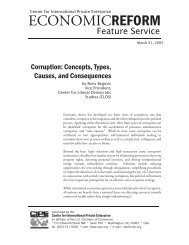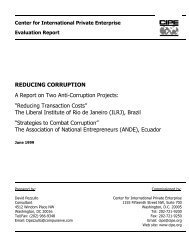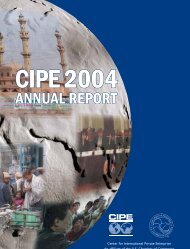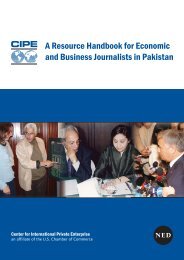Responsible Business Guide: A Toolkit for Winning Companies
Responsible Business Guide: A Toolkit for Winning Companies
Responsible Business Guide: A Toolkit for Winning Companies
Create successful ePaper yourself
Turn your PDF publications into a flip-book with our unique Google optimized e-Paper software.
RBG<br />
<strong>Responsible</strong> <strong>Business</strong> <strong>Guide</strong>: A <strong>Toolkit</strong> <strong>for</strong> <strong>Winning</strong> <strong>Companies</strong><br />
In recent years EU legislation has been passed to regulate product compliance <strong>for</strong> a wide<br />
range of products. To date, the legislation primarily targets food products, with requirements<br />
to disclose origin, level of processing, exposure to radiation or other treatment, additives<br />
such as enzymes or preservatives, and genetically modified or allergenic content. Non-food<br />
items, particularly plastics and recycled materials, are also the subject of regulatory<br />
compliance, particularly when in contact with food. Among articles of ordinary use, the<br />
most frequent regulatory disclosure requirement is con<strong>for</strong>mity labeling or the “CE” mark,<br />
followed by eco-labels. Appliances are required to comply with energy ratings and safety<br />
marking. The social labeling requirements are expected to get more and more stringent,<br />
with the EU considering fair-trade as a new area <strong>for</strong> compliance.<br />
Apart from the compliance and disclosure required by law, there is another area of<br />
compliance that addresses quality and specifications, with thousands of product standards<br />
developed by the International Organization on Standardization (ISO). In the electronic<br />
technology arena, product standards are developed by the International Electro-technical<br />
Commission (IEC).<br />
Hence, compliance is an important aspect of business, from corporate per<strong>for</strong>mance to<br />
product quality. A responsible company understands all compliance requirements relevant<br />
to its business, and ensures that appropriate steps are taken to provide verifiable evidence<br />
<strong>for</strong> the authorities or the client through credible disclosure mechanisms.<br />
At the business-to-business level there are recognized codes of conduct, often industryspecific<br />
and sometimes voluntary, that require business partners to disclose procurement<br />
mechanisms across the supply chain, particularly those relevant to human rights,<br />
discrimination, and corrupt practices. Over the past decade or so, a number of voluntary<br />
disclosure codes and indexes have gained wide acceptance. Allowing companies to present<br />
their way of doing business <strong>for</strong> general scrutiny, these instruments are often used by<br />
investors or clients to make investment or purchasing decisions beyond the traditional<br />
“Price-Quality-Service” triad.<br />
Well-known Disclosure Frameworks<br />
<strong>Companies</strong> that aim to be successful in a globalized world face the challenge of being able<br />
to prove to influential stakeholders that they con<strong>for</strong>m to the minimum standards of<br />
acceptable corporate behavior. Disclosure, thus, is a window into a company’s compliance.<br />
The table below lists the various compliance and disclosure frameworks current today.<br />
<strong>Responsible</strong> <strong>Business</strong> Initiative 33



